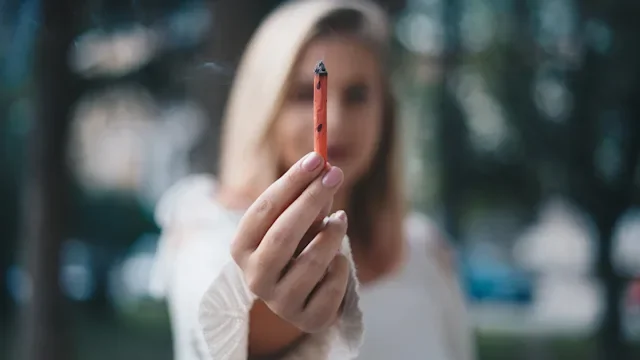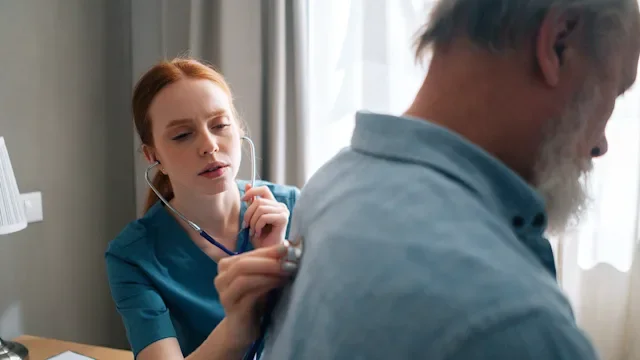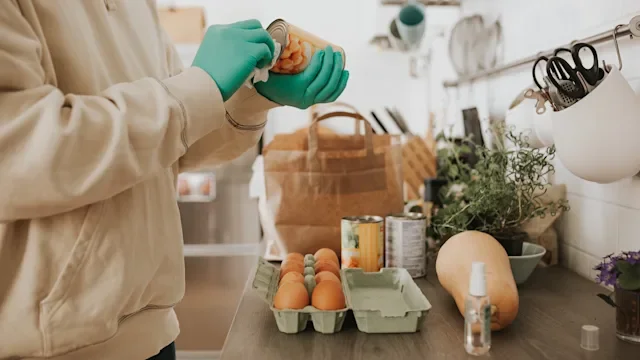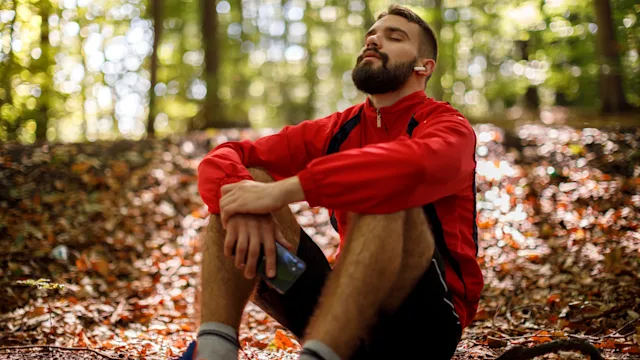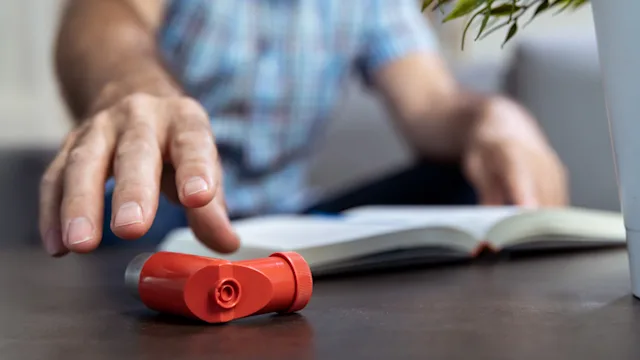Key takeaways:
While hiccups usually go away on their own, there’s no shortage of home remedies for getting rid of them.
Tricks range from changing the way you breathe to eating or drinking something.
But, which hiccup hacks are based in science? See what our physician recommends.
When Anthony Guglielmi gets the hiccups, he reminds himself that he is not a fish.
That stops his hiccups every time.
Hiccups are a sudden spasm, or contraction, of the diaphragm. A quick intake of air causes the glottis to close, which causes the “hic” sound. Hiccups typically last only for a short time. The best way to get rid of them is up for debate. Everyone seems to have a hiccup anecdote.
“The cure I have seen work the most on myself and a number of people has been simply reminding myself that I am not a fish,” says Anthony, a 35-year-old video specialist in Lexington, Kentucky. “Believe it or not, I learned this from TikTok.”
TikTokers have been touting this trend, saying air gets trapped in our stomachs and hiccupping is our body’s attempt to get it out.
“This is something we’ve inherited from our evolution from fish and amphibians,” Anthony says. “The difference is fish and amphibians have gills to release the air. We do not. So maybe by reminding ourselves that we’re not fish, it causes our brain to realize that it needs to find another way for our body to release the trapped air.”

Anthony doesn’t get the hiccups too often, but he enjoys using and sharing this method. He says everyone he’s told has also found it to be effective.
That seems to be a common thread when it comes to hiccup cures — it’s not just about stopping your own hiccups, but also passing your “wisdom” along to others.
Don’t know why, but it works
When Dianna Carney got rid of the hiccups in front of the 4-year-olds in her preschool class, they were amazed.
Read more like this
Explore these related articles, suggested for readers like you.
Now a 28-year-old freelance writer and content coordinator in Plymouth, Massachusetts, Dianna was eating lunch in her early education classroom when she got the hiccups. She used the “foolproof” method she had learned from a friend: She put a paper towel over a cup of water, then took a drink.
“The sucking motion you need to create with your lips to suck the water through the paper towel must be the reason it works, but I don’t understand it,” Dianna says. “I’m not sure why, and I can’t medically explain it, but it works.”

Her preschoolers didn’t understand the trick either, but that didn’t stop them from trying it. Rather than finishing their lunches, they kept putting napkins over their cups and drinking — whether they had the hiccups or not.
Stopping the embarrassment of hiccups
In a physics class during secondary school, Gold Frank spent several uncomfortable minutes trying to hold in her hiccups.
The “hiccup attack” wasn’t a big deal, but it was kind of loud and pretty obvious. Gold held it in as long as she could, but then “it just came out like ‘mm-bup.” The teacher and students turned to stare at her.
“My face got really hot, and I’m certain that if I had a fairer complexion, I would be bright red,” Gold says.
Thankfully, Gold says, her grandmother “fancies herself to be an authority on literally every issue” — and she actually did know quite a lot about getting rid of the hiccups. She recommended a few methods that proved effective, including eating sugar and holding your knees to your chest. But the most effective and easiest to do is tugging on your tongue, Gold says.
“Weirdly enough, this does the trick,” Gold said. “All you need to do is stick out the tip of your tongue and tug on it gently a few times.”

Gold, a hairstylist from Akwa Ibom, Nigeria, said this is her preferred method because it can be done anywhere. It takes a little while, and she has to wipe off her fingers, but she says it’s effective.
The accomplishment of sharing a hiccup cure
Years ago, during a middle school math class, Michael Pelaez’s friend got a bad case of the hiccups and asked to leave the classroom to the water fountain down the hall.
“The teacher, with an excited look on her face, quickly grabbed a cup and a spoon from the cabinet and excitedly told my friend to fill the cup with water and bring it back because she had the best solution for hiccups,” Michael remembers.
At this point, he felt kind of bad for his friend, who was now “part of a demonstration in front of the whole class.”
The teacher showed her hiccup cure: Place a spoon inside the cup full of water, raise the cup to your lips while placing the handle on the bridge of your nose, then drink the water.
Michael, who lives in Hialeah, Florida, has used it ever since, and he says most of the time, it works.

“I look forward to people around me getting the hiccups so I can introduce them to this method,” Michael says. “Whenever I’ve been around friends and someone has the hiccups, it seems like everyone just starts calling out their methods: ‘Hold your breath!’ ‘Eat peanut butter!’”
Michael says his method usually wins.
“There’s a comical sense of accomplishment,” he says, “like if you’ve ‘cured’ something with your advice.”
What does the doctor say?

Patricia Pinto-Garcia, MD, MPH
Medical Editor
Here’s a fun fact — you’ve been hiccuping since before you were born.
Fetal hiccups are an important part of respiratory development. But after that, hiccups serve no purpose except to annoy and distract you. There’s no fail-proof method to stop hiccups because hiccups are a reflex response. So, you have no control over them.
But that certainly hasn’t stopped scientists and non-scientists from finding ways to banish hiccups.
Most hiccup busting methods work by stimulating the vagus nerve. The vagus nerve starts at the brain and ends in the gastrointestinal tract. It plays a role in controlling nearly every major bodily function. So by stimulating the vagus nerve, you’re almost giving your body a mini reset and hopefully breaking the hiccup reflex.
There are many ways to stimulate the vagus nerve, like: slowly drinking ice water, breathing through a straw, gently pushing your tragus into your ear canal, or applying pressure to your eyelids. And like Gold’s grandmother suggests, you can also pull on your tongue or slowly eat sugar.
Another way to get rid of hiccups is to slightly raise the level of carbon dioxide in your body. The easiest way to do this is to hold your breath for 10 to 30 seconds and repeat a couple of times.
You can also try putting one or more of these things together. That’s why drinking ice water through a straw is such a popular remedy. You may need to use these remedies a few times in a row before your vagus nerve kicks into gear. The good news is that most bouts of hiccups go away within a few minutes.
If your hiccups last more than 48 hours, or if you’ve been getting hiccups more often, talk to a healthcare provider. Some medications and certain medical conditions can lead to frequent hiccups. Finding out what’s causing your hiccups is the first step to lasting relief.

Why trust our experts?













